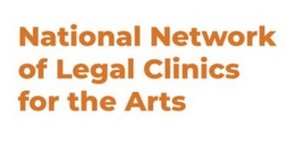New Research Reveals Urgent Legal Needs in Arts Sector

The National Network of Legal Clinics for the Arts, a group comprised of members of existing Canadian pro-bono legal clinics, announced the release of a pressing report housing significant new research on the multitude of legal challenges facing individuals working in the Canadian arts sector - accelerated to critical levels due to the devastating impact of COVID-19. Entitled Now More Than Ever: Towards a National Network of Legal Clinics for the Arts, the report highlights gaps in legal needs, legal literacy and education, and protections that are taking dramatic tolls on a sector whose earnings were already near poverty levels prior to the pandemic.
"The legal needs sought by artists and arts organizations are incredibly specialized," says Martha Rans, Legal Director of Artists' Legal Outreach (ALO) in Vancouver - one of three clinics currently a part of the emerging national network. "Most artists have difficulty navigating complex contracts and copyright issues - they find their work taken without permission and often don't know where to turn. Since the COVID-19 crisis began, we have heard from a number of artists left out in the cold when a gallery is closed without notice, agreements cancelled without compensation, and commercial tenancies in jeopardy (including the closure of artist studios with less than 30 days notice)."Copyright, with individual artists ranking this as their most urgent concern - in particular in emerging digital spaces - and arts organizations identifying it as #2 (behind Contracts);
Indigenous Artists face unique subsets of challenges, including the ubiquity of cultural appropriation;
Geographic limitations, the six existing legal clinics primarily operate in urban centres, which makes their services essentially inaccessible to a significant proportion of the artistic population who would use such services.
Legal clinics have shown they can respond quickly and nimbly to the needs of the arts & culture sector in times of crisis. By unifying these efforts into a national network, artists and arts organizations will be provided meaningful access to justice from Coast to Coast to Coast.
We had an inkling of the need for a national model based on the increasing demand for our legal clinic's support in each respective urban centre - but this compelling new research illuminates a need that even we did not anticipate," says Paul Sanderson, Co-Founder of Toronto's Artists' Legal Advice Services (ALAS). "The findings of this report clearly demonstrate the essential call for a national strategy, so that artists living across the country, in any community, can access the legal advice and information they need. As the arts sector faces down the ongoing fallout of the COVID-19 pandemic, this need has become even more immediate." In Canada Council for the Arts' recent National Survey on the Federal Emergency Aid Measures and the Arts Sector in Canada (May 2020), the upcoming financial hardship was laid bare. Of responding artists, 42% had or would be applying to the Canada Emergency Response benefits; among responding organizations, 41% had or would be applying to the Canada Emergency Wage Subsidy. "In the months since Canada went into quarantine, it is artists and creatives whose contributions have helped our country stay connected, entertained, and uplifted," adds Rans. "It is this same community are among those suffering the most during this time, but some of this hardship can be erased and alleviated through the establishment of Canada's first-ever national network. We remain more committed than ever to see this dream come to reality."In the coming months the ALO, ALAS, and the Artists' Legal Services Ottawa (ALSO) will begin offering Art Law Talks on a regular basis from Coast to Coast to Coast.
Now More Than Ever: Towards a National Network of Legal Clinics for the Arts was funded by the Canada Council for the Arts and the department of Canadian Heritage. The full report can be viewed and downloaded at: http://legalclinicsforarts.com/Comments
Videos

